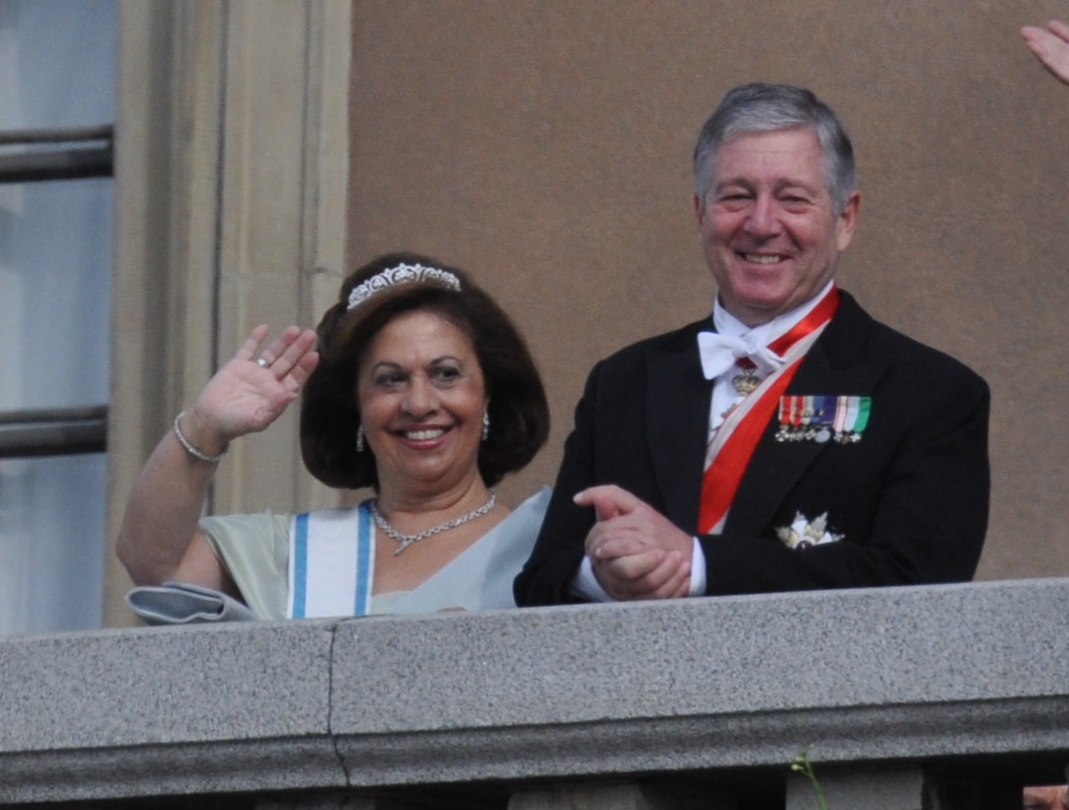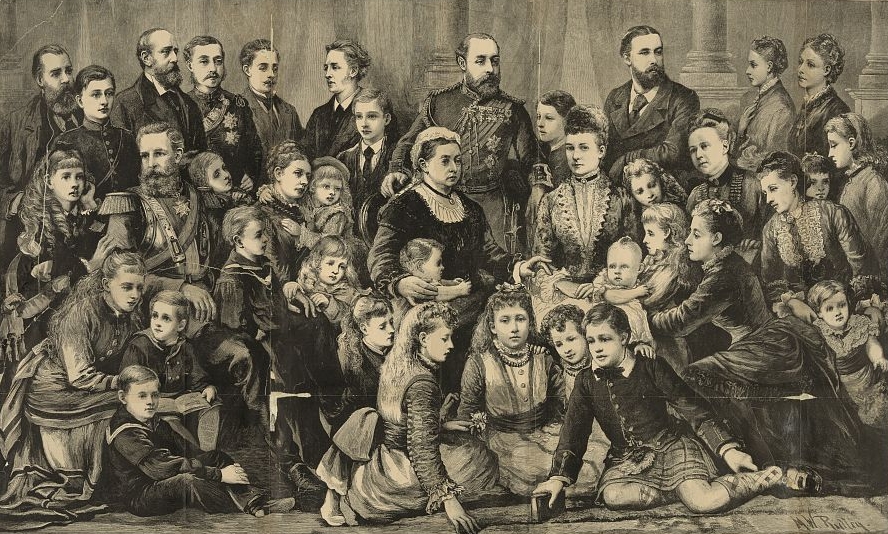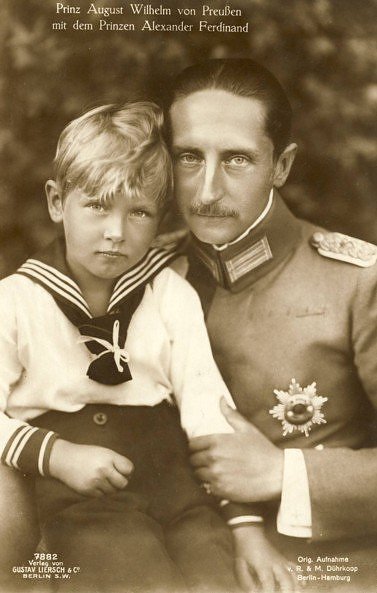|
Prince Alexander (other)
Prince Alexander may refer to: * Alexander, a character from the ''King's Quest'' series of video games * Alexander Cambridge, 1st Earl of Athlone, born as Prince Alexander of Teck * Alexander Karađorđević, Prince of Serbia (r. 1842–1858) * Alexander Mountbatten, 1st Marquess of Carisbrooke, born as Prince Alexander Albert of Battenberg (1886–1960) * Alexander of Bulgaria, born as Alexander Joseph of Battenberg (1857–1893) * Alexander I of Serbia (1876–1903), King of Serbia * Alexander I of Yugoslavia (1888–1934), King of Yugoslavia * Prince Alexander of Hesse and by Rhine (1823–1888) * Prince Alexandre of Belgium, Alexander Emmanuel Henry Albert Marie Léopold (1942–2009) * Prince Alexander of Denmark (1903–1991), later became King Olav V of Norway * Prince Alexander von Fürstenberg (born 1970) * Prince Alexander of Georgia (1770–1844) * Prince Alexander of Hohenlohe-Waldenburg-Schillingsfürst (1794–1849) * Prince Alexander of Imereti (1674–1711) * ... [...More Info...] [...Related Items...] OR: [Wikipedia] [Google] [Baidu] |
King's Quest
''King's Quest'' is a graphic adventure game series, released between 1980 and 2016 and created by the American software company Sierra Entertainment. It is widely considered a classic series from the golden era of adventure games. Following the success of its first installments, the series was primarily responsible for building the reputation of Sierra. Roberta Williams, co-founder and former co-owner of Sierra, designed all of the ''King's Quest'' games until the series' reboot in 2015. The ''King's Quest'' series chronicles the saga of the royal family of the Kingdom of Daventry through their various trials and adventures. The story takes place over two generations and across many lands as the heroes and heroines fight villains such as evil witches and wizards. Games *''Wizard and the Princess'' (1980) / ''Adventure in Serenia'' (1982) *''King's Quest'' (PC, 1984) / ''King's Quest: Quest for the Crown'' (1984/1987) / ''King's Quest: Quest for the Crown'' (Sega Master Sys ... [...More Info...] [...Related Items...] OR: [Wikipedia] [Google] [Baidu] |
Prince Alexander Of Kartli (died 1773)
Alexander ( ka, ალექსანდრე), also known as Ishaq Beg (ისაკ-ბეგი) (c. 1705/8 – September 1773), was an illegitimate son of the Georgian ruler Jesse of Kartli, of the Bagrationi-Mukhraneli, politically active in Georgia in the 1740s. His progeny subsequently flourished in the Russian Empire, producing a line of several notable figures of the 19th century, among them General Pyotr Bagration of the Napoleonic Wars fame. Career Alexander was born in Safavid Iran as a Muslim, and was called Ishaq Beg. From 1743 to 1744, he served as a lieutenant (janisin) of Kartli, then under the Iranian sway. He was soon removed from the office by his cousin Teimuraz II, of the rival Bagrationi branch from Kakheti, who became king of Kartli in 1744. Ishaq Beg joined the opposition faction led by his half-brother Abdullah Beg, but soon had to submit to the ascending power of the Kakhetian Bagrationi. In 1750, he converted to Christianity, baptized with th ... [...More Info...] [...Related Items...] OR: [Wikipedia] [Google] [Baidu] |
Alexander, Crown Prince Of Yugoslavia
Alexander, Crown Prince of Yugoslavia ( sr, Александар Карађорђевић, Престолонаследник Југославије; born 17 July 1945 in London), is the head of the House of Karađorđević, the former royal house of the defunct Kingdom of Yugoslavia and its predecessor the Kingdom of Serbia. Alexander is the only child of King Peter II and his wife, Princess Alexandra of Greece and Denmark. He held the position of crown prince in the Democratic Federal Yugoslavia for the first four-and-a-half months of his life, from his birth until the declaration of the Federal People's Republic of Yugoslavia later in 1945. In public he is also claiming the crowned royal title of "Alexander II Karađorđević" ( sr-Cyrl, Александар II Карађорђевић / ''Aleksandar II Karađorđević'') although the kingdom was abolished. Born and raised in the United Kingdom, he enjoys close relationships with his relatives in the British royal family. ... [...More Info...] [...Related Items...] OR: [Wikipedia] [Google] [Baidu] |
Prince Alexander John Of Wales
Queen Victoria, the British monarch from 1837 to 1901, and Prince Albert (her husband from 1840 until his death in 1861) had 9 children, 42 grandchildren, and 87 great-grandchildren. Overview Victoria and Albert had 20 grandsons and 22 granddaughters, of whom two (the youngest sons of Prince Alfred and Princess Helena) were stillborn, and two more (Prince Alexander John of Wales and Prince Harald of Schleswig-Holstein) died shortly after birth. Their first grandchild was the future German Emperor Wilhelm II, who was born to their eldest child, Princess Victoria, on 27 January 1859; the youngest was Prince Maurice of Battenberg, born on 3 October 1891 to Princess Beatrice (1857–1944), who was herself the last child born to Victoria and Albert and the last child to die. The last of Victoria and Albert's grandchildren to die (almost exactly 80 years after Queen Victoria herself) was Princess Alice, Countess of Athlone (25 February 1883 – 3 January 1981). Just as Victori ... [...More Info...] [...Related Items...] OR: [Wikipedia] [Google] [Baidu] |
King Carl XVI Gustaf Of Sweden
Carl XVI Gustaf (Carl Gustaf Folke Hubertus; born 30 April 1946) is King of Sweden. He ascended the throne on the death of his grandfather, Gustaf VI Adolf, on 15 September 1973. He is the youngest child and only son of Prince Gustaf Adolf, Duke of Västerbotten, and Princess Sibylla of Saxe-Coburg and Gotha. His father died on 26 January 1947 in an airplane crash in Denmark when Carl Gustaf was nine months old. Upon his father's death, he became second in line to the throne, after his grandfather, the then Crown Prince Gustaf Adolf. Following the death of his great-grandfather, King Gustaf V, in 1950, Gustaf Adolf ascended the throne and thus Carl Gustaf became Sweden's new crown prince and heir apparent to the throne at the age of four. Shortly after he became king in September 1973, the new 1974 Instrument of Government took effect, formally stripping Carl XVI Gustaf of his remaining executive power. As a result, he no longer performs many of the duties normally accorded t ... [...More Info...] [...Related Items...] OR: [Wikipedia] [Google] [Baidu] |
Prince Carl Philip Of Sweden, Duke Of Värmland
A prince is a male ruler (ranked below a king, grand prince, and grand duke) or a male member of a monarch's or former monarch's family. ''Prince'' is also a title of nobility (often highest), often hereditary, in some European states. The female equivalent is a princess. The English word derives, via the French word ''prince'', from the Latin noun , from (first) and (head), meaning "the first, foremost, the chief, most distinguished, noble ruler, prince". Historical background The Latin word (older Latin *prīsmo-kaps, literally "the one who takes the first lace/position), became the usual title of the informal leader of the Roman senate some centuries before the transition to empire, the ''princeps senatus''. Emperor Augustus established the formal position of monarch on the basis of principate, not dominion. He also tasked his grandsons as summer rulers of the city when most of the government were on holiday in the country or attending religious rituals, and, ... [...More Info...] [...Related Items...] OR: [Wikipedia] [Google] [Baidu] |
Prince Alexander, Duke Of Södermanland
A prince is a male ruler (ranked below a king, grand prince, and grand duke) or a male member of a monarch's or former monarch's family. ''Prince'' is also a title of nobility (often highest), often hereditary, in some European states. The female equivalent is a princess. The English word derives, via the French word ''prince'', from the Latin noun , from (first) and (head), meaning "the first, foremost, the chief, most distinguished, noble ruler, prince". Historical background The Latin word (older Latin *prīsmo-kaps, literally "the one who takes the first lace/position), became the usual title of the informal leader of the Roman senate some centuries before the transition to empire, the '' princeps senatus''. Emperor Augustus established the formal position of monarch on the basis of principate, not dominion. He also tasked his grandsons as summer rulers of the city when most of the government were on holiday in the country or attending religious rituals, and, ... [...More Info...] [...Related Items...] OR: [Wikipedia] [Google] [Baidu] |
Alexander, Prince Of Saxony
Alexander, Prince of Saxe-Gessaphe (German: ''Alexander Prinz von Sachsen-Gessaphe''; born ''Alexander Afif'' 12 February 1954), is the adopted son and heir of Maria Emanuel, Margrave of Meissen, and a businessman with Lebanese, Mexican, French, Polish and German roots. Following the death of Maria Emanuel in July 2012 he assumed the headship of the Royal House of Saxony, based on a 1997 agreement that named him heir, but which was repudiated a few years later by a number of signatories. His claim is disputed by his cousin Prince Daniel of Saxony. Early life and career Born in Munich as Alexander Afif, he is the eldest son of Roberto Afif, Dr. Jur (mentioned as Catholic nobleman of Lebanon) and Princess Anna of Saxony. At birth Alexander did not possess rights to the abolished throne of Saxony (which was regulated by semi-Salic succession) as his parents’ marriage did not meet the equal marriage requirements of the Saxon house law. Alexander legally assumed the surname ''Prinz ... [...More Info...] [...Related Items...] OR: [Wikipedia] [Google] [Baidu] |
Prince Alexander Romanov
Prince Alexander Nikitich Romanov (4 November 1929 – 22 September 2002) was a member of the Romanov family. He was a son of Prince Nikita Alexandrovich of Russia and a great nephew of Nicholas II of Russia, the last Tsar. Born in France, he took British citizenship in 1938 and lived with his grand mother Grand Duchess Xenia Alexandrovna in England until her death in 1960. The following year, Prince Alexander Nikitich became the first member of the Romanov family to visit Russia after the Revolution. Life He was born in Paris, the youngest son Prince Nikita Alexandrovich of Russia and his wife Countess Mariya Ilarianovna Vorontzova-Daschkova. Prince Alexander was a grandson of Grand Duchess Xenia Alexandrovna and Grand Duke Alexander Mikhailovich of Russia and a great nephew of the last Russian Emperor, Nicholas II. He spent the early years of his life in the United Kingdom and received British nationality in 1938. By age 14 he was fluent in five languages. He was interested in ... [...More Info...] [...Related Items...] OR: [Wikipedia] [Google] [Baidu] |
Prince Alexander Ferdinand Of Prussia
Prince Alexander Ferdinand Albrecht Achilles Wilhelm Joseph Viktor Karl Feodor of Prussia (26 December 1912 – 12 June 1985) was the only son of Prince August Wilhelm of Prussia and his wife Princess Alexandra Victoria of Schleswig-Holstein-Sonderburg-Glücksburg. Family and early life Prince Alexander of Prussia was born on 26 December 1912 to Prince August Wilhelm of Prussia and his wife Princess Alexandra Victoria of Schleswig-Holstein-Sonderburg-Glücksburg. August Wilhelm was a younger son of Kaiser Wilhelm II.de Badts de Cugnac, Chantal. Coutant de Saisseval, Guy. ‘’Le Petit Gotha’’. Nouvelle Imprimerie Laballery, Paris 2002, pp. 78, 93, 96-97 (French). His parents divorced in 1920 and his mother remarried less than two years later; custody of the young prince was awarded to Alexander's father. Alexander attended the 1932 wedding of the Swedish prince Gustaf Adolf, Duke of Västerbotten with Princess Sibylla of Saxe-Coburg-Gotha in the former duchy of Cob ... [...More Info...] [...Related Items...] OR: [Wikipedia] [Google] [Baidu] |
Prince Alexander Of Prussia
Prince Friedrich Wilhelm Ludwig ''Alexander'' of Prussia (21 June 1820 – 4 January 1896) was the eldest child of Prince Frederick of Prussia and his wife, Princess Luise of Anhalt-Bernburg. Early biography Military career Alexander joined the army at a young age, and was attached to the headquarters of Crown Prince Frederick William during the Austro-Prussian War. During the morning of the decisive battle of Königgrätz, a humorous account recounted that while on his horse, it ran away; Alexander was found later in the afternoon seated on the horse in a neighboring wood, stating that his horse had insisted on going there. He served as a general of infantry in the Prussian army. He was also a chief of the Third West Infantry Regiment and chief of the Second Regiment of Grenadiers of the Guard in the Landwehr. Later years In 1891, Alexander ended his ''cure'' at Marienbad and embarked for Ostend for three to four weeks. A contemporary figure once recounted that: "The ... [...More Info...] [...Related Items...] OR: [Wikipedia] [Google] [Baidu] |
Prince Alexander Of The Netherlands
Prince Alexander of the Netherlands, Prince of Orange-Nassau (William ''Alexander'' Frederick Constantine Nicholas Michael, nl, Willem Alexander Frederik Constantijn Nicolaas Michiel, Prins der Nederlanden, Prins van Oranje-Nassau; 2 August 1818 – 20 February 1848) was born at Soestdijk Palace, the second son to King William II of The Netherlands and Queen Anna Paulovna, daughter of Tsar Paul I of Russia. He was nicknamed Sasha within his family. Biography Prince Alexander was born on Sunday, 2 August 1818 at a quarter past ten in the morning. His birth was announced the next day in the Nederlandsche Staatscourant. To commemorate the birth of his second grandson William I of the Netherlands gave his daughter-in-law Anna Pavlovna the Czar Peter House in Zaandam, which had been inhabited by her ancestor Peter I of Russia during his stay in the Dutch Republic. Prince Alexander was christened on the forty-sixth birthday of his grandfather, 24 August 1818, by the Reverend K ... [...More Info...] [...Related Items...] OR: [Wikipedia] [Google] [Baidu] |






